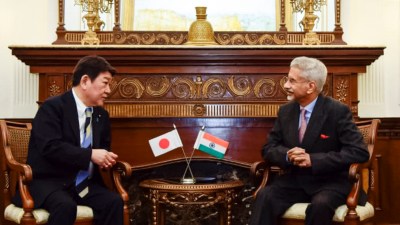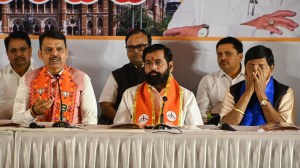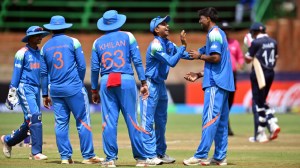Intelligence needs reforms
The United Progressive Alliance government has appointed J.N. Dixit, former foreign secretary, as the national security adviser NSA and M....

The United Progressive Alliance government has appointed J.N. Dixit, former foreign secretary, as the national security adviser NSA and M.K. Narayanan who retired as director, Intelligence Bureau and had served on the task force on intelligence set up to address some of the recommendations of the Kargil Review Committee, as a special adviser to the prime minister. The national security council NSC is still to be notified and its role, if necessary, to be redefined. However the gazette notification of April 16, 1999 of the NDA government setting up the NSC and defining its role would appear to be broadly adequate and may not need any immediate revision. The most important task is to get the NSC started and keep it going.
The outgoing NSA, while he performed brilliantly in his international interactions and in projecting India as a global player, totally neglected the institutionalisation of the NSC and the building up of its capability to play the role assigned to it. India is today involved in the global war on terrorism and the country itself has been a major target of the jehadis. Again, there has been a global nuclear proliferation network involving China, Pakistan and North Korea and its activities have grave security implications for this country. The unilateralist policies of the US in the war on terrorism have a fallout all over this region which affects our national security. In these circumstances, it is absolutely essential for this country to have a mechanism for intelligence assessment with global reach and that it should be made available to the members of the NSC and other senior officials on a fortnightly basis. This assessment machinery, as the lessons of the 9/11 Commission in the US and the Hutton inquiry in the UK highlight, should be autonomous and fully empowered to coordinate all intelligence agencies.
Unfortunately in the NDA administration the autonomy of the Joint Intelligence Committee JIC, the assessment body, was downgraded and it was treated as part of the NSC secretariat. This should be rectified. Every NSC meeting should start with an intelligence briefing to all members of the NSC and senior officials. The practice of every minister and senior official coming out with his own individual assessment on the rate of infiltration or level of terrorist violence in the Kashmir valley should stop.
There is an increasing demand that India and China should be invited to join the G-8 to make it G-10. It implies that India8217;s role in the global economy is becoming significant. Markets all over the world are sensitive to happenings elsewhere and the foreign direct investments into India are influenced by the continuous adjustments India makes to global economic trends. Besides, the stock market scams, the UTI crash, the localised regional food deficiencies etc in the last decade also highlight the need for a continuous economic assessment and for that to be placed before the NSC along with the fortnightly politico-strategic assessment. One of the areas to be monitored by the NSC is global economic trends and their impact on our security. It may be necessary to develop an institutionalised mechanism to carry out the assessment of national and global economic trends. It may have to be decided whether this mechanism should be in the finance ministry or the planning commission.
There is no doubt that the NSC secretariat should be expanded and there is a need for two deputy national security advisers even while making the chairman, JIC, who is now designated deputy to the national security adviser autonomous. The K.C. Pant Committee, set up by NDA government, in 1998, which included Jaswant Singh and Air Commodore Jasjit Singh as member secretary had provided a model organisational chart for the NSC secretariat. That could be a starting point to begin the reorganisation of the NSC secretariat.
It is also necessary at the initial stage to make it very clear to all ministries, departments and agencies that the NSC is not a super-government and is not meant to displace the policy-making functions of the ministries. It is only an advisory council, which looks at various trans-ministerial issues related to national security and is expected to focus attention on such issues to enable the ministries to come up with their policy options before the NSC. It will initiate action to get interministerial studies undertaken, monitor their progress and report to the NSC. This clarification is absolutely essential since there is a fear among ministries that the NSC may trespass on their legitimate turf.
In the long run, the NSC, if it fulfills its role, should bring about a change in the governmental culture. First it should make ministries look at issues globally, in the long term and holistically. Secondly, increasingly ministries may have to outsource many of their long-term planning projects to taskforces and expert groups. They should also get out of the habit of getting studies done by experts and then generalist civil servants nitpicking on them.
One of the problems this country faces in running the NSC is of the paucity of trained personnel in the subject 8212; national and international security. In the US, the very best talents from universities are attracted to a career in this area. In India, a start has to be made and it would take some years to get qualified PhDs from universities if the NSC starts instituting fellowships right now.
There is a huge task waiting for the NSC: to influence the modernisation of the foreign service, defence apparatus and intelligence organisations, most of which are still functioning without any basic reforms in the last five decades. Modernisation in their cases involve their adapting themselves to India8217;s new role in the international community and to enable India to grow at 8-10 per cent and eliminate poverty by 2020.
- 01
- 02
- 03
- 04
- 05































